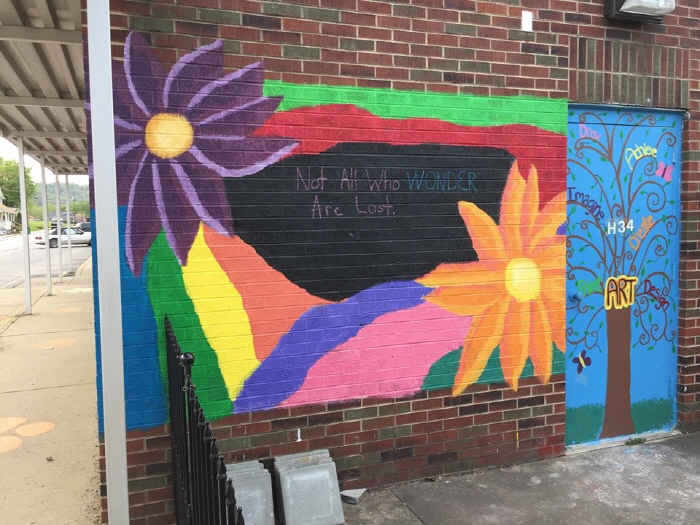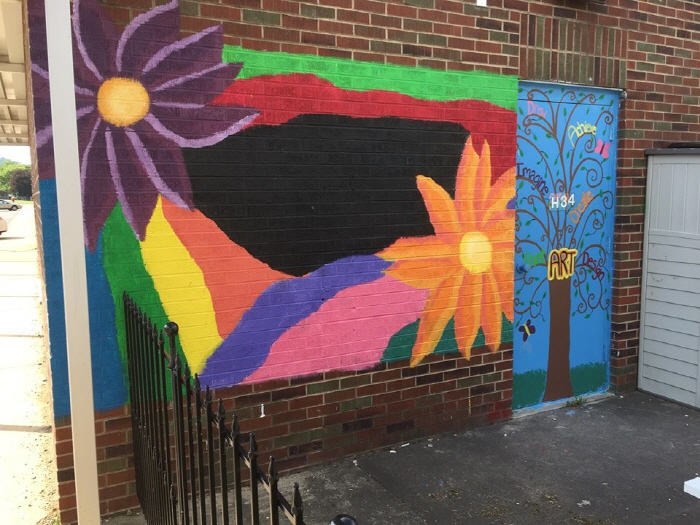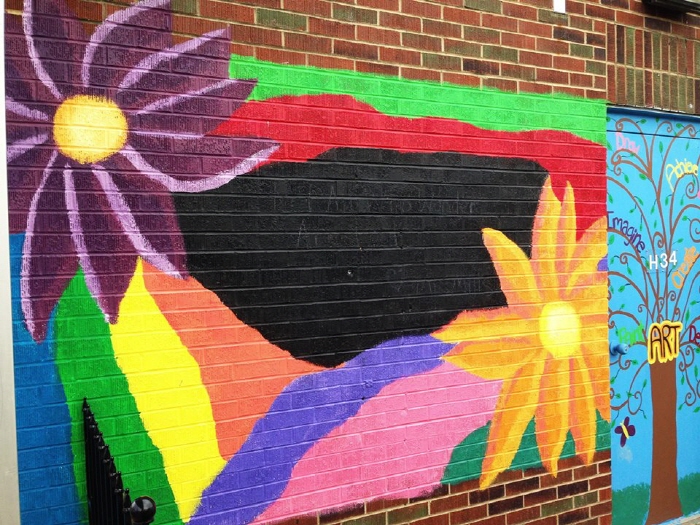









Holy Days in the Apple Pi Inn: A time to wander/wonder
This has been a season of wandering in Almost Heaven. Many days could be defined by the dictionary: “To move around or go to different places usually without a particular purpose or direction.”
In this particular form of non-pilgrim pilgrimage I’ve reached a revelation that was literally written on a wall. A High School wall to be precise that is located less than 2 blocks down from my door on Mulberry Street. I know a great deal about the coming and goings of that school because of the buses that rattle our bedroom walls at 6:30, 8:15, and 3:00.I’d taken to wandering in that direction before sundown in an exercise some humans call “a dog walk”. In my case it’s more “a human wandering after a dog”. Our four-legged mistress of the universe liked rolling in the grass at the edge of the football field, giving me time to read the scenery. The revelation was actually painted on the wall, part of an art project. Bright flowers form a frame around a blank black expanse. What I discovered however was that the space wasn’t exactly blank. When the light was right you could make out the following words” “Not all who wander are lost.” There were also faint traces of a heart and a name, Miss Mills.
The almost gone message made me wonder. Had someone had tried to erase it? Was it washed away by the rain? Was this censorship or climate change? Did the wander quote make folks wonder if they got it wrong, missed their turn, lost their way? If we start wondering are we afraid we are wandering?
I wonder about the unknown Miss Mills and the quote. I wonder if this was a theological claim as well as a literary citation. “Not all who wander” is part of a poem written by J. R. R. Tolkien from his fantasy novel The Lord of the Rings. Maybe she just liked the movie.
The almost gone sign turns into what Margaret Miles calls theoria, a term to describe the shift in perception that accompanies a shift in the sense or meaning of an experience. This is being “lifted out of one’s familiar world and into the living presence of the spiritual world” by a concentrated seeing.
My wondering/wandering turns into a destination/duty: check the wall every day. One morning, the black is completely blank; painted over. I wait to see what might come next. Nothing for almost two months, then after a guest sermon where I wonder aloud about Thomas and why doubt troubles us but not God, a second sign appears “Not all who wonder are lost.” It’s written in chalk but not signed.
An affirmation of faith, indeed. I visit the wall twice a day for several weeks and suddenly the witness is gone. Painted over. Disappeared without a trace, except, of course, for those who wonder and remember what the poet promises:
“All that is gold does not glitter,
Not all those who wander are lost;
The old that is strong does not wither,
Deep roots are not reached by the frost.”


